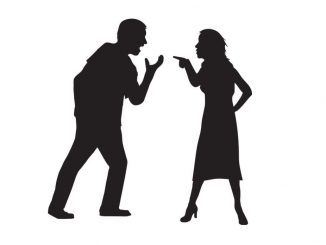Whether in my Relationship Counselling or Adult Counselling work, I often focus on helping people work towards a less stressful life.
The issue is that when we are stressed (or, more specifically when we don’t feel safe), we can become more emotional, in particular, we might suffer or experience more negative emotional arousal.
This is because our bodies create a hormone called Cortisol when we are stressed and unsafe. This hormone is designed to help us survive stressful moments such as being chased by a hungry tiger.
One way it tries to help us survive the tiger encounter is the split-second diverting of blood and oxygen away from our Frontal Cortex (the high-level thinking and reasoning part of our brain) and instead floods our Amygdala (the emotions processing part of our grey matter) with all that extra blood and oxygen.
Whoever designed us realized that we are (potentially) more likely able to survive the tiger encounter by being able to (potentially) fight it off or run away from it, not sit down and try and rationalize with it!
Naturally, the more activated the Amygdala the more intense the emotional experience, and thus, the more likely the person is to Fight, Flight, Freeze, or Fawn.
These strong emotions, as you might imagine, can significantly impact how a person feels and acts, particularly in a relationship context, and potentially, particularly if the person has a trauma background.
How important is this? Very. For example, I have developed my own version of Maslow’s Hierarchy of Needs but in a relationship context.
In my model, the basis of a relationship, the very bedrock which everything is built upon is safety. If you or your partner aren’t fundamentally safe (or safe enough), you most likely cannot achieve positive outcomes.
So, almost all the time, if you want the very worst version of your partner, stress them out and make them feel unsafe. This, of course, will most likely only negatively rebound on you (a concept that some very logical and grounded people/partners sometimes seem to struggle with in therapy).
This is not just me saying it. A new study undertaken in the USA has again reinforced how stress and a lack of safety can negatively affect our relationships.
The University of California researchers looked at Cortisol levels in study participants and cross-referenced those levels with the individuals’ self-reported emotional states and relationship satisfaction.
It was found that older couples have lower levels of the stress hormone when their partners feel positive emotions.
This effect was even stronger for people who reported higher satisfaction in their relationships.
“Positive emotions can buffer the production of cortisol,” said Tomiko Yoneda, an assistant professor of psychology in the College of Letters and Science and the study’s lead author.
“This is especially relevant when we think about how our relationship partners might actually bolster that effect.”
So, in a relationship context, how do we help our partner feel safe and less stressed? Here are some quick tips:
Minimise Uncertainty
- Have some structure and routine in your life together
- Make plans together
- Work towards shared goals
Determine what each other’s boundaries are and respect them. Boundary areas include:
- Physical
- Sexual
- Intellectual
- Emotional
- Financial
- Spiritual
Remember, boundaries are the distance at which you can love someone and yourself simultaneously.
Watch your body language
Be an active listener
- Put your phone down
- Acknowledge what your partner is saying
- Take an interest in what they have to say
Practice Transparency
- Be open with your partner
- Be honest
Give your partner the benefit of the doubt
Follow through (a very important one)
- If you tell your partner you’re going to do something do your best to make it happen
Reassure and restate your commitment (especially when the sun isn’t shining)
Validate your partner at every opportunity
How to build safety (and reduce stress) for yourself?
Well, some of those relationship tips can be turned inwards, for example, inner validation (more on that here) and making sure wherever possible that people are respecting your boundaries.
And, most importantly, lots of self-care (which is what we all should be doing anyway!), and potentially, therapy.



